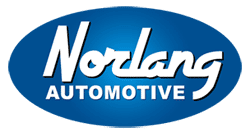Fuel leaks should never be ignored since gasoline is extremely flammable and can be potentially very dangerous to the vehicle, its owner and anyone around it. In fact, fuel leaks are the most common cause of vehicle fires.
Identifying Fuel Leaks
Fortunately, fuel leaks normally leave spots on the ground underneath a parked vehicle and also have a strong gasoline odour. Furthermore, leaks in your fuel system can be detected in the form of unburned gas exiting the system as vapor in your exhaust. It’s also important to keep in mind that a leak can occur at numerous points along a vehicle’s fuel system.
The Most Common Causes of Fuel Leaks
In modern vehicles, the most common causes for fuel leaks are the fuel lines and their fitting which may be damaged or crack due to normal wear and tear. Fuel tank leaks are also common since they can be damaged or begin to corrode. The fuel injection system could be a source of fuel leaks as well.
Fuel Lines and Hoses
Your fuel lines need to be checked regularly, especially your fuel tank vent hose. This is the hose through which the fuel from the fuel tank travels to reach the engine. Leaks can occur due to damage to the hose or because its mounting points are not properly sealed. Frequently, leaks are the result of tiny gaps made between the hose and the component on which it is mounted.
Fuel Tank
The fuel tank can develop a leak because it can be punctured by road debris or it can begin to deteriorate. A fuel tank can corrode or deteriorate at the top because moisture and debris (like road salt) get trapped there with no way of drying out.
Fuel Injection System
In the case of the fuel injector, the rubber seal at the bottom or the O-ring on top can dry out and crack due to normal wear and tear. Injectors can also leak fuel due to improper installation which usually means that the seal or O-ring have been damaged and need replacement.
For more information about fuel leaks, you can visit Norlang Auto Service Centre, call us at (604) 888-8681 or book an appointment online now.
